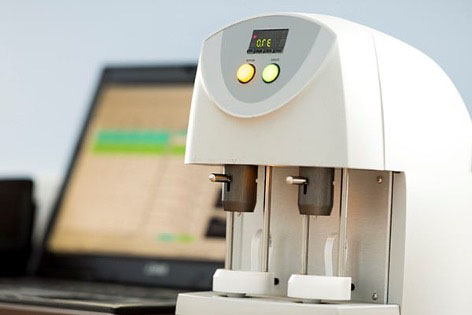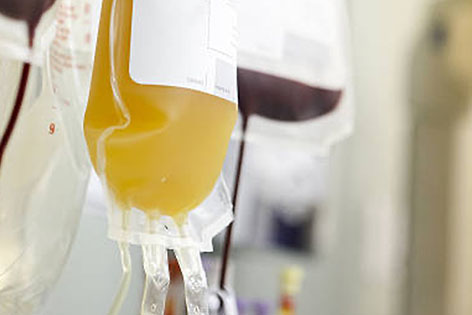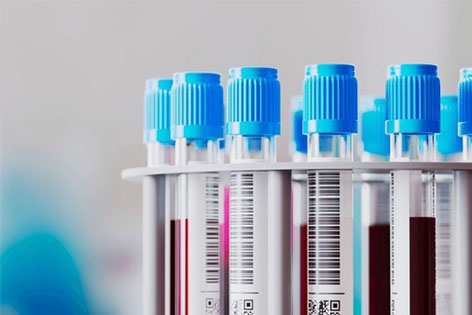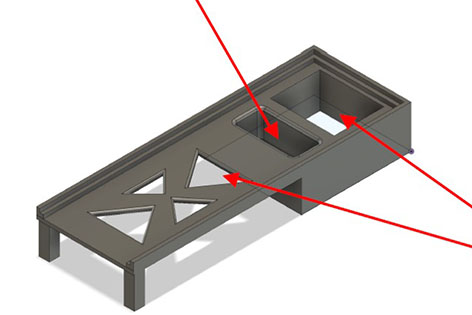Research in the Hemostasis and Thrombosis Research Lab
Research in the Hemostasis and Thrombosis Research Lab
TEG and Collagen

Thromboelastography (TEG) is widely used to evaluate clot characteristics in a variety of clinical care settings, ranging from trauma to liver transplants. In this study, we are testing if adding collagen to standard TEG reagents could be used as an alternative option to diagnose certain bleeding disorders.
TPO Study

Thrombopoietin is a hormone responsible for regulating platelet production. For this study, we are comparing TPO levels in patients before and after they receive platelet transfusions to determine if transfusions alone can cause long lasting effects on TPO.
ADAMTS13

Deficiency of ADAMTS13 is known as Thrombotic Thrombocytopenic Purpura (TTP) and causes excessive clotting. Currently, the tests we use to monitor ADAMTS13 levels are sent out to reference laboratories. We are working with the Microbiology Department to bring an ADAMTS13 assay to our clinical lab to expedite these results for our patients at U of R.
von Willebrand Testing on Microchip Assay

Laboratory testing for von Willebrand Disease (vWD) is both expensive and time consuming. We are partnering with Dr. Benjamin Miller’s lab to develop a microchip assay that has potential to serve as a point-of-care test for vWD, requiring only a few drops of blood.
HIT Study

This study is aimed to determine if recent heparin administration causes erroneous results in the Heparin-Induced Thrombocytopenia Assay, and subsequently, if adding heparinase (an enzyme that degrades heparin) changes the results of the HIT test.
TEG Neuro

Delayed cerebral ischemia (DCI), which describes a new neurologic deficit or infarction arising 3–14 days after aneurysmal subarachnoid hemorrhage (aSAH), contributes to long-term disability and mortality following aSAH. Thromboelastography (TEG), which provides dynamic assessment of clot formation and breakdown, has been used in trauma and transplant settings to assess coagulopathy. This study evaluates whether TEG parameters can predict DCI development in aSAH patients.
RIT ABO POCT

We are partnering with RIT to develop a point-of-care device designed to rapidly provide blood type results with just a few drops of blood.